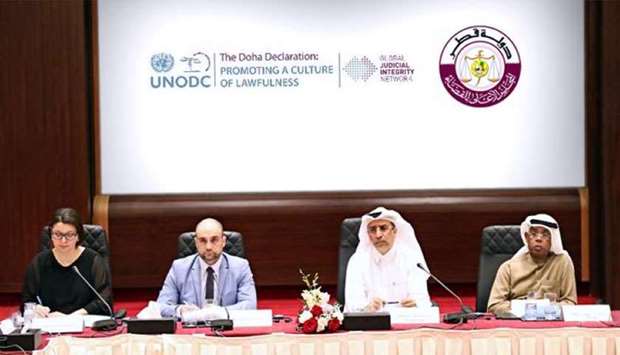The consultative meeting between the Supreme Judicial Council (SJC) and the United Nations Office on Drugs and Crime (UNODC) concluded with the aim of organising the second Global Judicial Integrity Network conference, to be held in Doha on November 18 and 19 this year.
The members of the Network's Advisory Board endorsed the proposal of HE the Chairman of the Supreme Judicial Council Dr Hassan Lahdan Saqr al-Mohannadi, recognised the Board as including some of the world's key legal minds, brought together to tackle issues such as judicial conduct and anti-corruption, and stressed the Network's importance in spreading the rule of law.
The members of the Network's Advisory Board also discussed the Rules of Procedure of the Global Judicial Integrity Network, the nomination process for membership, and representative diversity on a humanitarian and geographical basis for the Global Map.
In this context, the meeting reached amendments to the rules mentioned by increasing the number of members to 12 instead of 10 and ensuring a permanent representative seat as the UN Special Rapporteur on the independence of judges and lawyers.
The members also agreed with the proposal of the representative of Qatar to make the rules for the nomination of new members take account of the international standards adopted by the international multilateral organisations so that States would not object to the relevant procedures and ensure transparency.
The members of the Network's Advisory Board pointed out that judicial immunity supports the judge in promoting the ethics of his profession and to ensure professionalism, and to provide an environment of reassurance so that laws wont be used in an unjust manner.
It was agreed that the next meeting would be held at the headquarters of the UN organisations in Vienna in August, with the final draft of the themes and programme of work of the Global Judicial Integrity Network conference.
An integral component of UNODC's Global Programme for the Implementation of the Doha Declaration, it has been a leader in promoting a culture of lawfulness on an international level, by working with and by supporting judicial institutions and professionals in member states through a variety of means.

